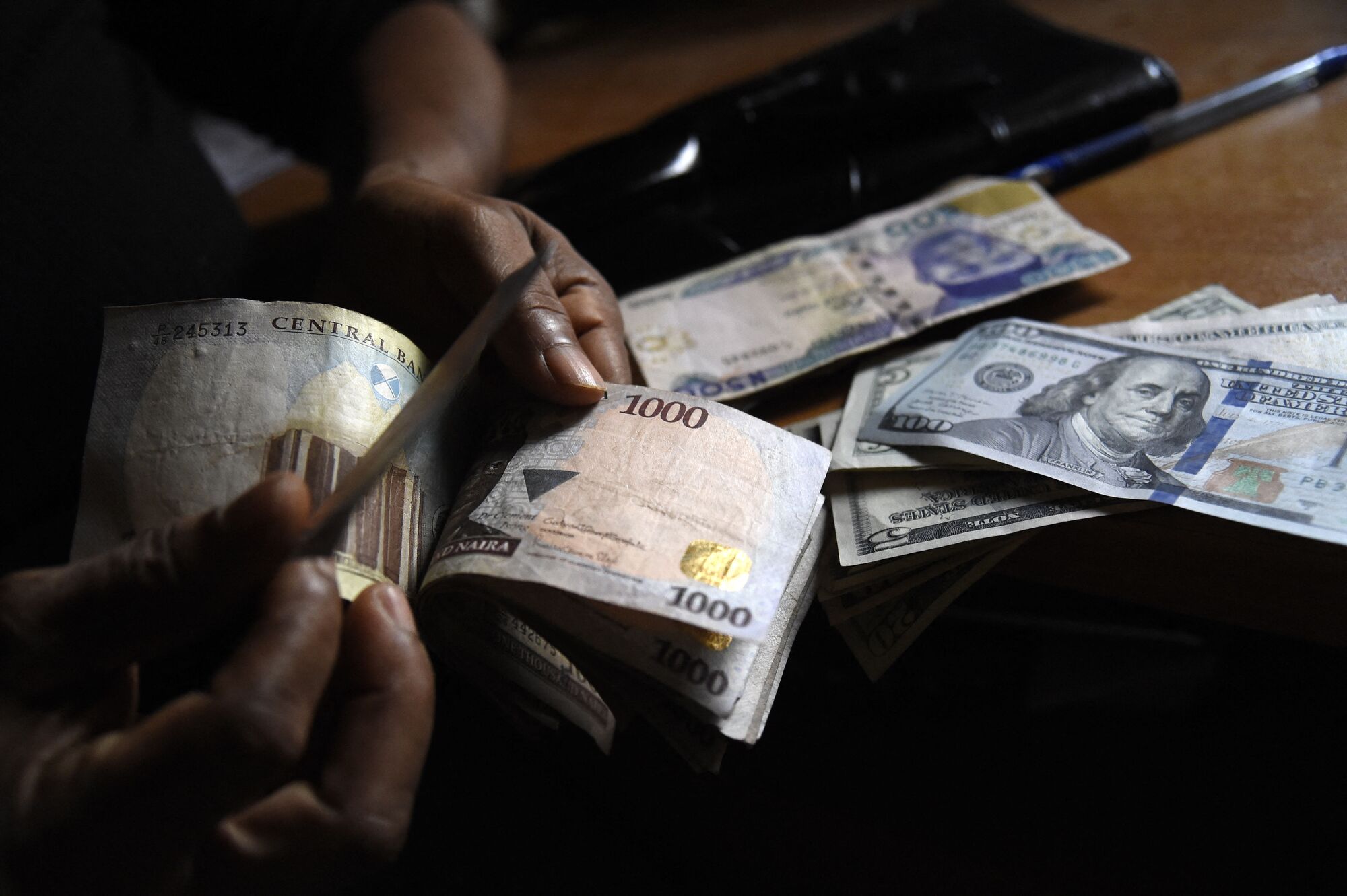Nigeria Plans New FX Rules, Targeting 750 Naira Exchange Rate

Nigeria is planning to introduce new foreign exchange rules — including a crackdown on illegal currency trading — that it hopes will result in the naira closing its more-than-45% gap with the unofficial rate and reaching a “fair price” by year-end, a top official said.
The government plans to clear a backlog of dollar demand estimated at about $6.7 billion, bolster the naira forward market, and set transparent rules for the operations of the official market, Taiwo Oyedele, chair of the presidential committee on fiscal policy and tax reforms, said in an interview.
It also aims to expand the official market to include all legitimate transactions, while snuffing out the illicit “black market” for foreign currency, he said.
“We think all of that will happen before December, and maybe in a matter of a couple of weeks we will begin to see the results, such that before the end of the calender year, naira should find its true value, not the one that is being done currently in the parallel market,” Oyedele said.
The government sees a “fair price” for the dollar at 650 to 750 naira, he said. That compares with the official exchange rate which was fixed at 802.59 as of 1.08 p.m. Monday. In the parallel market, where the exchange rate is freely determined between buyers and sellers, it traded at 1,165 on Monday, according to Abubakar Mohammed, chief executive officer of Forward Marketing Bureau de Change Ltd., which compiles the data.
West Africa’s biggest economy allowed its currency to trade more more freely against the dollar in mid-June, resulting in a devaluation of about 40%. It was hoping to attract more dollar inflows and improve liquidity that had dried after years of pegging the naira against the dollar. Meanwhile, the parallel market thrived on the back of an inflexible official exchange.
The divergence between the official and parallel-market rates “means you are sucking liquidity and supply from the official market to the parallel market, because everyone wants the premium,” Oyedele said.
Nigeria expects to receive $10 billion of inflows in the coming weeks that will help ease liquidity and clear the backlog of overdue forward contracts weighing on the naira, the country’s finance minister Wale Edun said at a summit in Abuja last week.
President Tinubu signed two executive orders last week that were also aimed at reversing the flow of dollars from the official FX window into the parallel market, Edun said at the summit. One will enable issuance of dollar-denominated instruments aimed at locals in Nigeria who have dollars, while the second is to issue dollar-denominated bonds directed at Nigerians outside the country, as well as and foreign investors.
Both executive orders are in the process of being gazetted, according to Edun.
While the central bank had informed lenders in June that the naira’s exchange rate against the dollar would be determined through supply and demand, it later appeared to have reintroduced controls to steady the currency after its 40% plunge.
“There is a need for clarity on how the market operates, and that is a particular assignment that is in progress,” Yemi Cardoso, Nigeria’s central bank governor, who was appointed in September, said at the Abuja summit. “Once that comes out and people are very clear on what the rules are, and what the guidelines are, and they can predict, I think it will go a long way in managing this speculative activity.”
— With assistance by Nduka Orjinmo, Ruth Olurounbi, and Emele Onu

